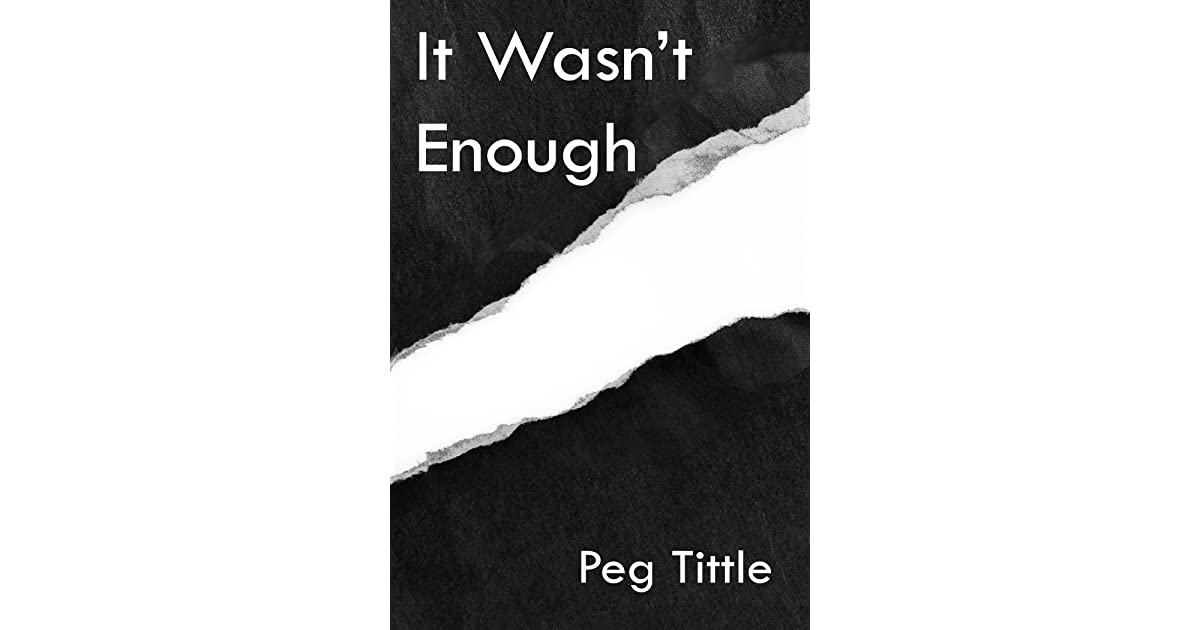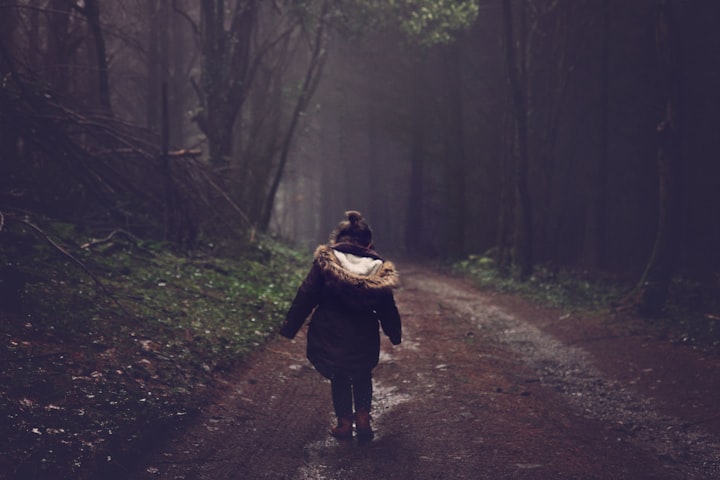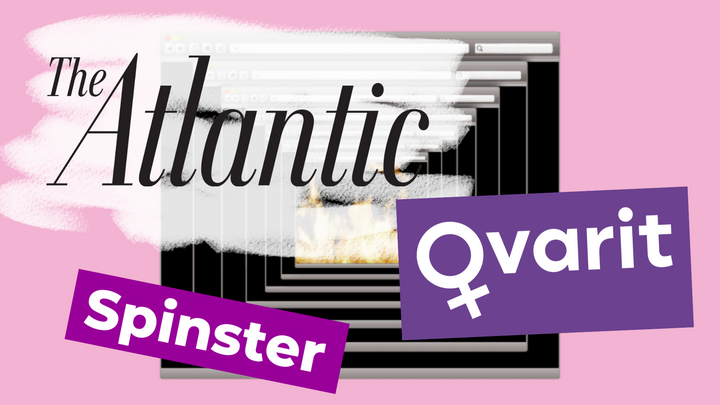Review of ‘It Wasn’t Enough’ & an Interview with Peg Tittle
Punching Well Above its Weight, and Straight in the Gut

What happens when a woman disappears? In developing countries, not much. The police might note her death as owing to a burst gas cylinder and move along. In the developed world, you get a thriller with a breathless black cover, or the kind of wildly popular and enduring television series mostly named some variant on “ ____ and ____”. The death or disappearance of women is a handy plot device, the “fridging” of female characters to spur the male protagonist on the ever-greater acts of derring-do, the better to showcase his unfailingly noble and tortured soul. But what happens when all the women disappear? Not just the visible, famous ones, but all of them? Down to the smallest girl-child?
Peg Tittle imagines the outcome of just such an occurrence in her book, It Wasn’t Enough. It’s a smallish book, punching well above its weight, and straight in the gut. Because while men have always dreamed of a He-Man woman-free utopia (Eton, Oxford and Cambridge, for example), the reality would be pretty damned grim, for no support humans remain in this brave new world.
The author tells her tale through the eyes of a variety of men, varying greatly the one from the other in their attitudes towards the invisible 51% who cushion their lives. Men who choose not to marry, men who marry happily, or unhappily, men who don’t consider the reality of women to be worth study, men who view women as less than inanimate objects, and we see what happens when the gloves are on but the punching bag is nowhere in sight.
I read the book from cover to cover in one afternoon, pulled inexorably along by the readable style and careful pacing. I then spent a long time staring at a wall, recovering from the free-fall, hurtling journey, coming to the conclusion that this book must be read. This book is essential reading to anyone, man or woman, who has ever wondered what our future would look like when the wheels are already coming off in the present.
This is not the sort of book one reads in a lounger by the pool. It is hard, it minces no words. Women will see their lives. Men will see their crimes. Whether they will learn from this mirror remains to be seen.
I allow myself the small hope that wherever the women went, is a safe, wholesome place, full of joy and healing. The kind of safe space which is fast disappearing.
We had the opportunity to talk to Peg about her books, radical feminism, men, and what she hopes for the future generation. Excerpts of the interview can be found below, and links to all her work at the very end. Mild spoilers ahead. Some comments have been edited for clarity and brevity.
Could you tell us a little about you - where you were born, where did you live all your life, when did you write your first book?
I was born in Canada, lived in Canada all my life (mostly in Ontario, but also in Quebec and British Columbia), and wrote my first book in the 1980s.
What inspired you to imagine a world where the women just disappear? You've mentioned that Wil Wheaton's tweet regarding male gamer responses to Anita Sarkeesian was one of the many inspirations - could you take us through your thought trajectory?
A comment made on a feminist website inspired the novel; someone had referred to a movie in which all the Mexicans disappeared, a movie created, presumably, to illustrate their value to Americans, and Mar Iguana suggested that something similar would illustrate women's value.
I took it many steps further, intending, hoping, not only to illustrate women's value but also their (subordinate) role, their (second-class) position, hoping that, as Marcus suggests in the novel, a recognition of women's role/position, often attained by having to fill that role/position themselves, would jumpstart men's understanding of sexism and lead to change.
Wheaton's tweet wasn't an inspiration; it was just something I wanted to include—an appeal from a man to men. I was impressed by his comment because so often it's assumed that women have the responsibility for … well, for so many things. You know, it's our fault. It is telling how little it takes for me to be impressed by something a man does. (Men, you should be insulted by how low we've set the bar.)
Would you write a sequel where we learn about where the women went after all?
Nope. But you might be interested in reading my Jass Richards' novel A Philosopher, A Psychologist, and an Extraterrestrial Walk into a Chocolate Bar.
“My guess is that life's like that for a lot of women; how can they really know how oppressive men's presence is until they experience their complete absence?”
Do you think women (not only lesbians) would welcome a chance to live away from men?
Yes. Even if they don't know it yet. I didn't realize how oppressive men's presence was until I attended a SWIP meeting—Society for Women in Philosophy—at which there was not a single man, and what a difference that made. Similarly, my local credit union just happens to be staffed entirely by women, and it just feels different there, compared to the local bank at which the manager is a man. My guess is that life's like that for a lot of women; how can they really know how oppressive men's presence is until they experience their complete absence? It's one thing to theorize, to imagine, but another to actually experience it … (as Andrew and Justin discover, in It Wasn't Enough)
What is the importance of the characters like Marcus? Is he a bridge of reason? Is he the one that would make men finally realise what scumbags they are? Do we need a Marcus?
I don't know that I'd call him a bridge of reason, so much as a voice of reason, but he is also very much a vehicle for presenting analysis. Furthermore, on one level, yes, I wanted to convey the 'not all men' view (because I knew, I just knew, so many of my male readers would cry out …), but that accounts not only for Marcus, but for several other men in the novel as well. On a more significant level, I wanted to present the anti-masculinity view of John Stoltenberg, both of whom I mention in the novel (‘Refusing to be a Man’ and ‘Getting Off’ are must-reads for men).
This book is intended as a work of fiction, but it is also an encyclopedia of women who've been erased by the kind of men you describe in your book. How did you manage to weave a tale by drawing references to reality, admirably, without moving away from the plot?
Actually, the aforementioned Jass Richards novel presents more of such an encyclopedia! I'm very glad you think I did draw references to reality without moving from the plot! It seemed quite easy given Marcus, his position, his class …
"Clearly men are more violent than women... The first question must be: is it because of nature or nurture? The second question must be: what do we do about that?"
Villages without men is a reality today. Take this Kenyan village for example. You've been very clear in your book about how the boys were left behind too. Some would argue that it is unfair for the children, but it is only fair given that it is their entire sex-class that has shot themselves in their foot. What was going on in your mind with regards to the male toddlers?
I explore that a bit more in Impact. Clearly men are more violent than women (they also exhibit greater insensitivity, greater self-interest, and so on). The first question must be: is it because of nature or nurture? The second question must be: what do we do about that? In the case of nature, I'm not sure what physiological remedy is possible, and in the case of nurture, given that men dominate the socialization of boys (through advertising and porn and tv and video games) and given that almost every father and certainly every coach glorifies masculinity, I think most of those male toddlers are doomed anyway. Alas, our boys grow up to be men. Our society makes sure of it.
How have the initial responses to your book been?
Very good. I'm a bit worried that too many readers will see only the 'women are valuable' point, and worse, a 'women are valuable because of the support they provide' point. While it is a bit puzzling, it is perhaps simply indicative of how conditioned we are to see ourselves only in support roles—because many of the jobs I mention that are no longer being done because they were done by women are not support positions (the factory jobs, the teaching, the research) and the readers will, therefore, miss the larger point about men: Marcus clearly develops the 'this is an opportunity' element, stating that it could go in one of two ways.
You have years of experience as an author, but could you talk a little bit about your life as a music composer and a playwright?
I actually started as both a writer (chriswind.net), of prose and poetry, and a composer (chriswind.com), of instrumental - Chopin-esque, Scriabin-esque, classical crossover - what is now called 'new age' (the better new age, not the awful wallpaper stuff). My favorite pieces are my duets for sax and wolves, loons, and rain, electronic (soundscapes with a bit of Pink Floyd wannabe that never was), and audio collage (think Hardcastle's "19", Simon and Garfunkel's "Silent Night" and Laurie Anderson's work) pieces.
Some time in my thirties, facing repeated rejection of my writing because it was too didactic or too 'mixed', I recall one editor telling me that I had to make up my mind—was I writing a short story or an essay? I'm convinced that if I were a man, I would have been applauded for being innovative. I hadn't yet discovered speculative science fiction, except for Atwood's Handmaid's Tale (interestingly, so much feminist scifi is speculative scifi—that is, it's making a point, saying something important).
I started writing what are now called 'think pieces' because I'd decided that I'd rather make a point and say something important than describe what clothes my characters are wearing, writing as Peg (pegtittle.com), and at about the same time, the music stopped (not that they two events are related). You might like to read chris wind's new novel, This is what happens.
In my forties, I made another turn, to humour, and 'Jass' surfaced (jassrichards.com), hopefully making people laugh and think at the same time.
Writing fiction as Peg (Exile, What Happened to Tom, It Wasn't Enough, Impact, Gender Fraud: a fiction) is a more recent development.
"Audience for Impact? Men. Women. Everyone."
While IWE is a seething, in your face reality check kind of a book, Impact took more of a subtle feminism 101 approach. Could you talk a bit about Impact, and the kind of audience that you wish would read it?
Oh wow, and I thought Impact was the more seething, in your face kind of book and It Wasn't Enough, the subtle one! Audience for Impact? Men. Women. Everyone.
Could you talk about the two other pseudonyms you write with, any reason why you picked neutral names for your alts?
Here the answer is simple: I don't think one's sex should matter except in sexual contexts and medical contexts. Having sex-neutral/androgynous names helps render it irrelevant—if you don't know whether the person you're interviewing is a male or a female or whether the work you're reading was written by a male or a female, hopefully you'll find it easier to judge on merit. Not sex.
"What would I like to tell young liberals? Feminism was hijacked."
How did you take to radical feminism, and what would you like to tell young liberals? Since Canada is imploding recently with gender nonsense, what future do you see for women's rights there?
I 'came of age', as they say, in the 70s; back then, what we called feminism was often radical feminism (actually still 'women's liberation' to some extent). Tear it down and rebuild without sexism, though sometimes it was 'just' liberal feminism—asserting agency, seeking equality.
What would I like to tell young liberals? Feminism was hijacked. Don't trust anyone under thirty when they start talking about feminism until you read the original works written in the 60s and 70s (Greer, Millett, Morgan, Dworkin, Spender—even go back to Beavoir's The Second Sex) (actually, just go find a radfem reading list online and work your way through it)!
As for the gender nonsense … Gender Fraud: a fiction might be of interest.
What would you tell men in order to avoid this future in which they crumble upon themselves, based on your book?
Think for yourself about what you believe and what you do. Have reasons; have evidence. Don't watch porn until you understand what that addiction will probably do to you.
Where can we get your books?
My books are available at most of the usual online places; all are available in eformat now, and all except the five new ones are available in print as well (the five new ones should be available in print during the summer—delays due to the pandemic).
Barnes and Noble | Kobo | Apple.com | Amazon
Smash Words (This is what happens, chris wind) ALL BOOKS ARE FREE FOR JULY.
chriswind.net | pegtittle.com | jassrichards.com
Enter your email below to sign in or become a 4W member and join the conversation.
(Already did this? Try refreshing the page!)





Comments